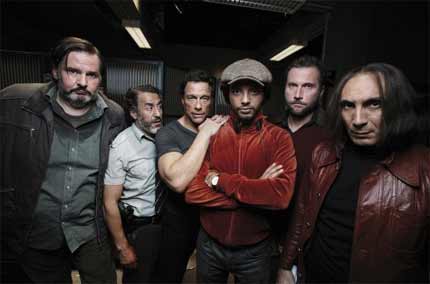JCVD

Release Date: Nov. 7 (limited)
Director: Mabrouk El Mechri
Writers: Frédéric Bénudis, Mabrouk El Mechri, Christophe Turpin
Cinematographer: Pierre-Yves Bastard
Starring: Jean-Claude Van Damme
Studio/Run Time: Peach Arch, 96 mins.
When was the last time you watched a Jean-Claude Van Damme movie? Hard Target (1993) may have been the flick that brought Hong Kong genius John Woo to Hollywood, but the Muscles from Brussels has not been in the ascendant in a long, long while. Van Damme, who just turned 48, belongs to a different generation of action hero—the hyper-masculine, death-dealing martial arts master whose lady-killing ways don’t rely too much on nuance. These days, all our superheroes, double agents and fearless men who race on dangerous missions to save the free world, yada yada yada, have gone emo. Matt Damon? C’mon! (Actually, the Bourne Trilogy is pretty great, but it’s a different order of Things Blowing Up Real Good.)
Yes, J-C has been consigned to straight-to-video limbo for a small eternity. Remember Replicant? Narco? How about Wake of Death? Until Death? Surely In Hell? You get the idea. Much like his 2002 film, released in Europe as Terror Train, Van Damme’s marquee market value was Derailed. But it sure is fun to read his IMDb page. Alas, what’s a studly avatar to do? Go emo, of course.
-

-

-

-

-

-

-

-

-

-

-

-

-

-

-

-

-

-

-

-

-

-

-

-

-

-

-

-

-

-

-

-

-

-

-

-

-

-

-

-








































